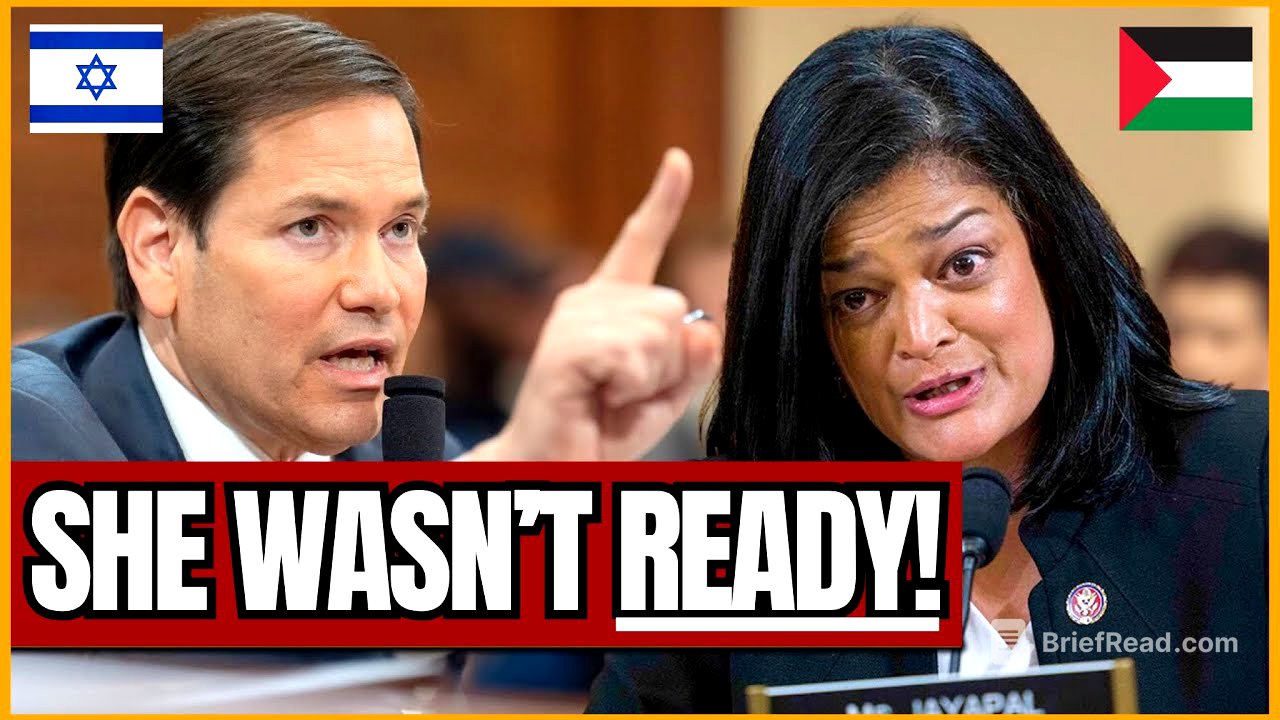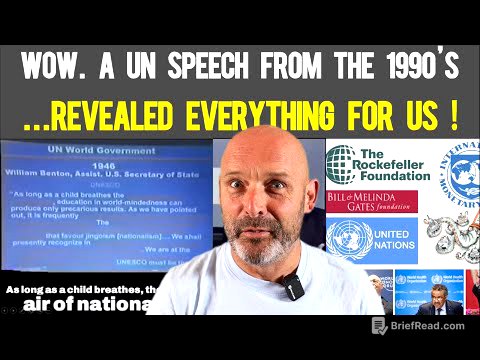TLDR;
Senator Marco Rubio confronts pro-Hamas sympathizers in Congress, addressing concerns about free speech, visa revocations, and anti-Semitism. He defends the right to revoke visas of individuals promoting hate and warns against the dangers of anti-Semitism, emphasizing the importance of standing in solidarity with Israel.
- Rubio defends visa revocations for those promoting hate speech.
- He warns against anti-Semitism and calls for solidarity with Israel.
- He references the Abraham Accords as a path to a better future in the Middle East.
Clash Over Visa Revocation [0:04]
Congresswoman Pamila Jaipal questions Secretary Rubio regarding the revocation of a student visa for Romea Ostk, a Turkish graduate student, for writing an op-ed. Jaipal argues that the revocation infringes upon free speech, citing a State Department memo that deemed the grounds for revocation insufficient and a federal court order for Ostk's release. Rubio defends his authority as Secretary of State to determine threats and revoke visas, stating there is no constitutional right to a student visa. He asserts his commitment to revoking visas of individuals who come to the U.S. to cause harm. Jaipal questions the use of masked agents in Ostk's detention and argues that revoking visas based on opinions violates the Constitution.
Debate on Free Speech and Visa Policy [1:59]
The discussion continues with Jaipal questioning whether Rubio believes he can override First Amendment protections and revoke visas based on his interpretation of free speech. Rubio refers to a statute granting the Secretary of State the authority to determine threats and deny visas. Jaipal argues that the Immigration and Nationality Act cannot supersede the Constitution. Rubio maintains his stance, asserting his liberty to revoke visas of those who seek to harm the country. Jaipal challenges Rubio on the administration's use of masked agents to detain Ostk and accuses him of acting as a national security advisor. Rubio clarifies that while he doesn't handle detentions, he is responsible for visa revocations based on national security concerns.
Discussion About Revoking Visas for Anti-Semitic Speech [4:30]
Jaipal asks if Rubio would revoke the visa of someone claiming "Jews are an untrustworthy and dangerous group," to which Rubio responds affirmatively, stating he would revoke the visa of anyone in the country as a guest who is there to cause harm. Jaipal then questions the Trump administration's decision to grant refugee status to Charles Klein house, who tweeted the same statement. Rubio explains that student visas are a privilege and are denied frequently.
Rubio's Pro-Israel Speech [5:34]
Rubio reflects on Israel's success as a high-tech superpower, attributing it to the Jewish people's embrace of their history and identity. He contrasts this with Israel's neighbors who chose war and failed to destroy Israel, impoverishing their own people instead. Rubio condemns anti-Semitism as the world's oldest and most futile bigotry, noting the historical failures of those who sought to destroy Israel. He expresses hope for a future where leaders abandon hatred and partner with Israel, building on the Abraham Accords.
Condemnation of Anti-Semitism and Solidarity with Israel [7:23]
Rubio recalls visiting the Yadvashm memorial and reflects on the phrase "never again," emphasizing its importance after the murder of Yaron Lashinsky and Sarah Mgrim. He notes the murderer's cry of "Free, free Palestine" as a battle cry for the death of Jews and the destruction of Israel. Rubio asserts that there can be no compromise with anti-Semitism and no separation between hatred of Israel and hatred of the Jewish people. He states that calls to boycott or commit violence against Israelis are calls for violence against Jews. Rubio affirms that the United States stands in solidarity with Israel and has implemented a vigorous new visa policy to prevent foreign nationals from fomenting hatred against the Jewish community. He expresses hope for a future where the Abraham Accords prevail.









